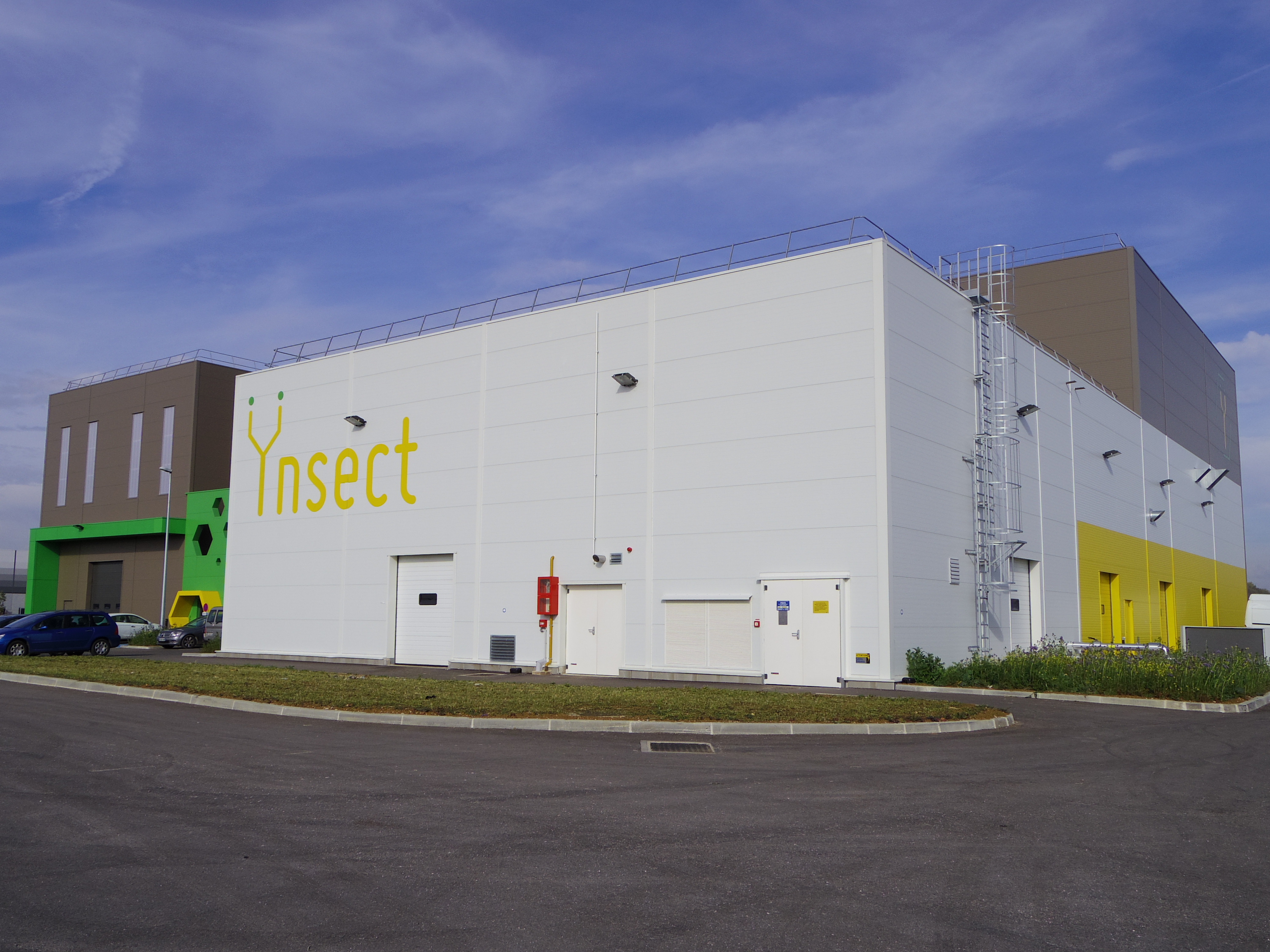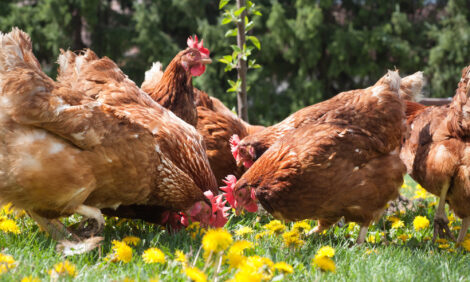



Ÿnsect wins €20 million backing from European Commission for fully automated bio-based protein plant
Ÿnsect announced the official launch of the first fully automated industrial facility to produce premium insect protein.The project, called FARMYNG is based in the city of Amiens, in northern France, and is co-funded by the European Commission and the Bio-Based Industries Joint Undertaking (BBI JU) who are investing €20 million euros. Ÿnsect, which will operate its Ynfarm plant as part of the programme, is the first French company to win an EU-backed project on such a scale.
Known as FARMYNG, the project will produce insects called Tenebrio Molitor on an industrial scale, which can be used as premium proteins for animal feed and fertilisers. This will be the first time that bio-based proteins are produced on an industrial scale, to meet ever-increasing global demand.
FARMYNG brings together 20 key players in the bioeconomy spanning every link in the value chain. It includes three raw materials and nutritional solutions suppliers (ADM Chamtor, Ajinomoto Animal Nutrition Europe and Mg2Mix), a larvae supplier (STAR FOOD), two research facilities (CRA-W and CEA-Genoscope), four tech suppliers (Ÿnsect, CLEXTRAL, TGC Extrusion and ULMA), a quality-control specialist (EUROFINS), a sustainability consultant (QUANTIS), an innovation consultant (PNO), four end-users (SKRETTING, VIRBAC, COMPO and TORRES) and three bio-economy clusters (IAR, CLIB and WPCC).
The project will have a huge impact on Northern France and Europe over the next 10 years, with the potential to ramp up production to over 200,000 tonnes of premium protein with revenues of around €1 billion and the creation of 1,200 direct and indirect jobs. In addition, the plant will benefit the environment by avoiding the need to reduce wild fish stacks by 800,000 tonnes.

An up-and-coming insect
The Molitor larva comprises more than 70 percent protein and is a natural source of nutrients for a wide array of animals, including fish, poultry, pigs, dogs and cats. It is also the insect species best suited to being farmed on an industrial scale, with huge potential as an alternative premium protein source due to the unparalleled nutritional and health benefits it offers to both plants and animals.
These qualities make the Molitor perfectly placed to promote a circular economy. The mealworm consumes all sorts of organic matter, even low-grade materials. It grows quickly and requires less space, less earth and less water than other animal protein sources. It also gives off less ammonia and fewer greenhouses gases than other premium animal proteins. The entire production system is modelled on a circular economy with zero-waste.
A revolutionary technology
The technology used in the FARMYING project was developed by Ÿnsect, which has 25 patents on its innovations. The technology is already being used at the first Ÿnsect site in Dôle, in the Jura region of eastern France, which has a capacity to produce up to 30 tonnes a month. FARMYNG will optimise the entire process at the new Poulainville plant on the outskirts of Amiens and boost monthly output to over 1,500 tonnes of protein.
The Amiens site is due to open in 2021, representing one of the first Industry 4.0 factories on the continent. It is both fully automated and uses vertical farming techniques to save both energy and space. The site also features many data sensors enabling Ÿnsect teams to develop predictive models to track insect productivity and growth.

© Ÿnsect
Speaking at the official launch, Antoine Hubert, CEO and founder of Ÿnsect, said the FARMYNG project devised and piloted by Ÿnsect would "lay the foundations for a new protein supply chain to meet the world's immense food challenge". He added that this was the first time a French company had won a European project on such a scale, saying: "We are very proud. We'd like to thank all our partners for their commitment and the European Commission and BBI JU for putting their faith in us. Europe is demonstrating its global leadership in alternative protein sources and is home to trailblazers throughout the value chain."
Philippe Mengal, executive director of BBI JU: "For BBI JU, funding the first industrial biorefinery able to turn insects into premium, high-value proteins for animal feed and fertilisers was a strategic priority. One of our key goals is to de-risk investments like this that have a significant socioeconomic impact. The flagship FARMYNG project will also further BBI JU's strategic aim of reducing the EU's reliance on massive protein imports.”










